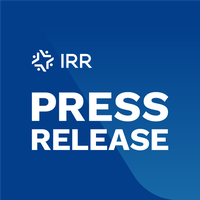
While the National Health Insurance (NHI) Act should not have been passed in the first place, President Cyril Ramaphosa’s open call for proposals aimed at resolving objections to the NHI must be embraced by all who appreciate the need for reform in the health industry, says the Institute of Race Relations (IRR).
Without rehashing all the reasons why the NHI in its present form poses a great risk to South Africans and their health-care needs, here are a few solutions for the President and the Minister of Health to consider:
One of the biggest impediments to affordable health care is the prerequisite placed on companies by the Medical Schemes Act to provide prescribed minimum benefits (PMBs). This requirement effectively blocks low-cost benefit options, as the list of minimum benefits adds up to about 271 medical conditions, including 26 chronic illnesses and all other emergency health conditions. In 2020, providing this coverage cost medical schemes R866.02 per average beneficiary per month.
This reportedly accounts for up to 50% of the price paid by beneficiaries, self-evidently making access to medical schemes punitively expensive, and thus limiting the provision of these health services to a small group of companies catering to a similarly limited group of well-off people. These laws can be revised to provide exceptions to the PMBs requirement.
Once medical aids are permitted to operate at a lower cost, the government can introduce measures that compel all formally employed individuals to be enrolled into a medical aid. While it is true that health care is a right, it is also the duty of responsible citizens to enrol themselves in a medical scheme of some kind.
Understandably, the present barriers to providing low-cost benefit options make this financially impossible − hence they must be addressed as the first order of business. There were some 11.5 million formally employed people in the second quarter of 2024. If this group and their dependants are enrolled in a medical scheme, this would lift a significant weight off public health infrastructure and free up resources that can be dedicated to the unemployed and the most vulnerable in society.
Medical tourism is an attractive avenue for revenue generation and an opportunity that must be exploited. South Africa already has a Medical Tourism visa, which allows foreigners to seek medical treatment in the country. Over the last five years, the industry was limited by the Covid pandemic and associated lockdowns and travel restrictions, yet the country still managed to attract 27,458 medical tourists, according to media reports. This industry must be cultivated, as it could provide opportunities for employment and medical innovation in the health sector, as well as earning more money in state revenue.
Health vouchers would strictly subsidise medical aid membership and health insurance. They would be funded by the government and be provided to the 12.4 million unemployed people, including the recipients of disability and pension grants.
Says IRR Campaign Manager Makone Maja: “Together, these solutions can propel the country towards providing far more inclusive health coverage at a fraction of the cost of the NHI and at exceedingly better levels of quality than the NHI could ever achieve.
"They provide opportunities for seizing the untapped potential of medical tourism and enabling South Africa to compete with other countries in a bid to become the number one destination for medical treatment for regions like the UK, where many citizens are escaping their own NHI equivalent, namely the National Health Services (NHS).”
Media Contact: Makone Maja, IRR Campaign Manager Tel: 079 418 6676 Email: makone@irr.org.za
Media enquiries: Michael Morris Tel: 066 302 1968 Email: michael@irr.org.za
 LETTER | Rethinking BEE premiums could unlock billions for growth - Business Day
Feb 19, 2026
LETTER | Rethinking BEE premiums could unlock billions for growth - Business Day
Feb 19, 2026
 IRR’s 2026 Budget tips for Minister Godongwana
Feb 19, 2026
IRR’s 2026 Budget tips for Minister Godongwana
Feb 19, 2026
 Corruption-busting must begin with next week’s Budget – IRR
Feb 18, 2026
Corruption-busting must begin with next week’s Budget – IRR
Feb 18, 2026
 Hold Ramaphosa to account for his SONA admissions of failure, IRR urges MPs
Feb 17, 2026
Hold Ramaphosa to account for his SONA admissions of failure, IRR urges MPs
Feb 17, 2026
 Corrigan pt. II: FMD crisis — How did we get to this point? - Biznews
Feb 16, 2026
Corrigan pt. II: FMD crisis — How did we get to this point? - Biznews
Feb 16, 2026

 LETTER | Rethinking BEE premiums could unlock billions for growth - Business Day
Feb 19, 2026
LETTER | Rethinking BEE premiums could unlock billions for growth - Business Day
Feb 19, 2026
 IRR’s 2026 Budget tips for Minister Godongwana
Feb 19, 2026
IRR’s 2026 Budget tips for Minister Godongwana
Feb 19, 2026
 Corruption-busting must begin with next week’s Budget – IRR
Feb 18, 2026
Corruption-busting must begin with next week’s Budget – IRR
Feb 18, 2026
 Hold Ramaphosa to account for his SONA admissions of failure, IRR urges MPs
Feb 17, 2026
Hold Ramaphosa to account for his SONA admissions of failure, IRR urges MPs
Feb 17, 2026
 Corrigan pt. II: FMD crisis — How did we get to this point? - Biznews
Feb 16, 2026
Corrigan pt. II: FMD crisis — How did we get to this point? - Biznews
Feb 16, 2026